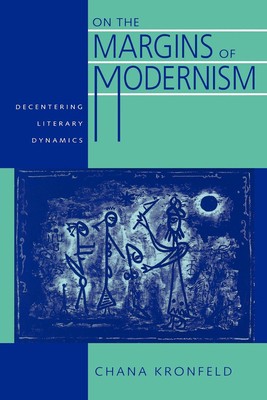
- We will send in 10–14 business days.
- Author: Chana Kronfeld
- Publisher: University of California Press
- ISBN-10: 0520083474
- ISBN-13: 9780520083479
- Format: 15.1 x 22.6 x 2.2 cm, softcover
- Language: English
- SAVE -10% with code: EXTRA
Reviews
Description
Modernism valorizes the marginal, the exile, the "other"-yet we tend to use writing from the most commonly read European languages (English, French, German) as examples of this marginality. Chana Kronfeld counters these dominant models of marginality by looking instead at modernist poetry written in two decentered languages, Hebrew and Yiddish. What results is a bold new model of literary dynamics, one less tied to canonical norms, less limited geographically, and less in danger of universalizing the experience of minority writers.
Kronfeld examines the interpenetrations of modernist groupings through examples of Hebrew and Yiddish poetry in Europe, the U.S., and Israel. Her discussions of Amichai, Fogel, Raab, Halpern, Markish, Hofshteyn, and Sutskever will be welcomed by students of modernism in general and Hebrew and Yiddish literatures in particular.
EXTRA 10 % discount with code: EXTRA
The promotion ends in 18d.06:35:54
The discount code is valid when purchasing from 10 €. Discounts do not stack.
- Author: Chana Kronfeld
- Publisher: University of California Press
- ISBN-10: 0520083474
- ISBN-13: 9780520083479
- Format: 15.1 x 22.6 x 2.2 cm, softcover
- Language: English English
Modernism valorizes the marginal, the exile, the "other"-yet we tend to use writing from the most commonly read European languages (English, French, German) as examples of this marginality. Chana Kronfeld counters these dominant models of marginality by looking instead at modernist poetry written in two decentered languages, Hebrew and Yiddish. What results is a bold new model of literary dynamics, one less tied to canonical norms, less limited geographically, and less in danger of universalizing the experience of minority writers.
Kronfeld examines the interpenetrations of modernist groupings through examples of Hebrew and Yiddish poetry in Europe, the U.S., and Israel. Her discussions of Amichai, Fogel, Raab, Halpern, Markish, Hofshteyn, and Sutskever will be welcomed by students of modernism in general and Hebrew and Yiddish literatures in particular.


Reviews